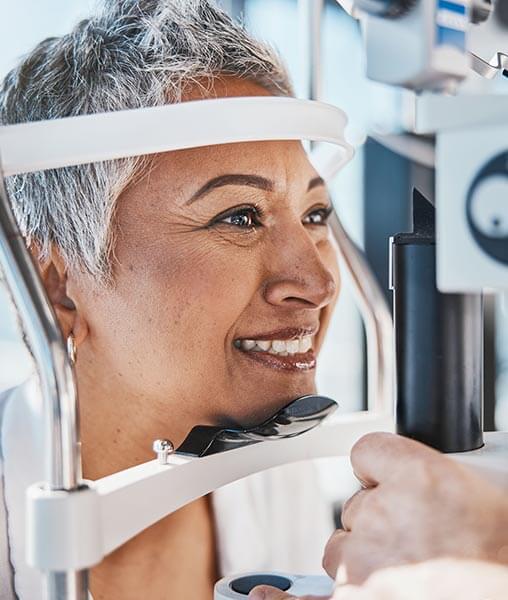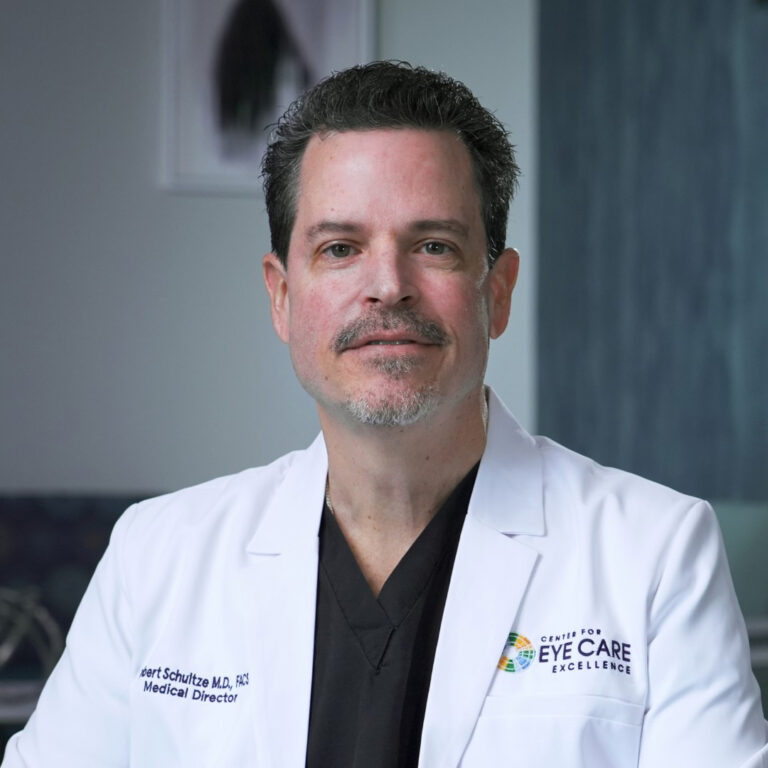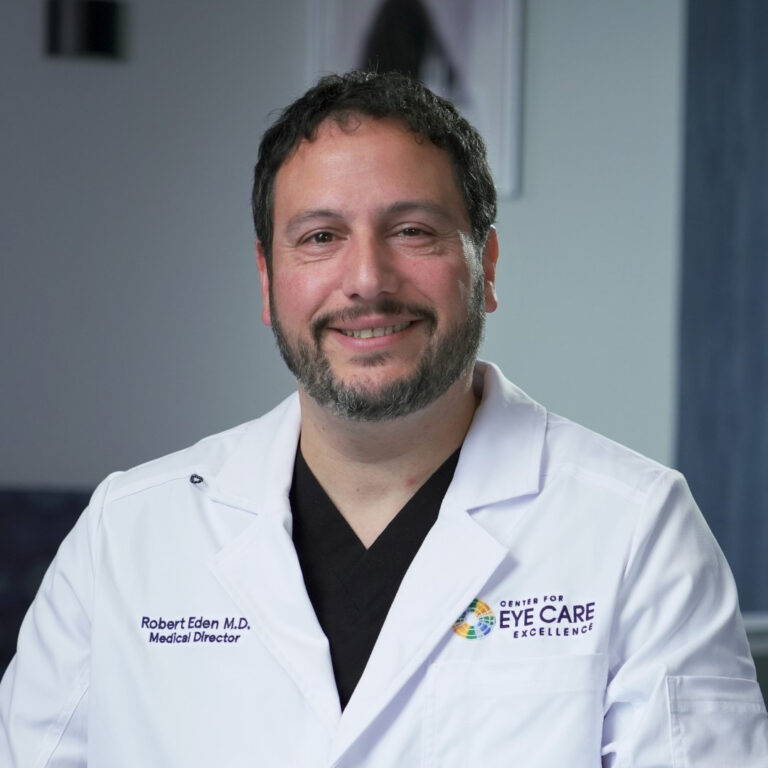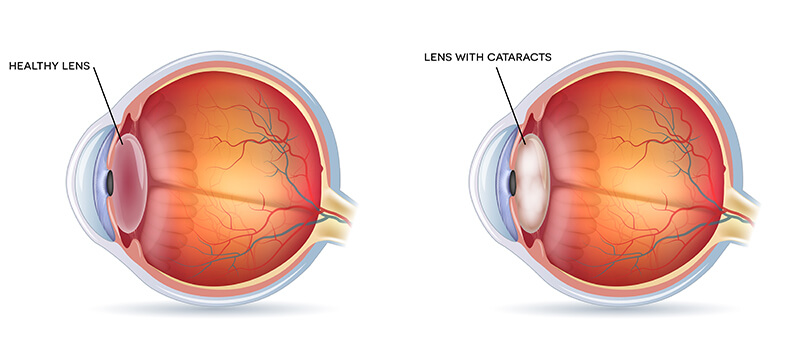
What Are Cataracts?
Cataracts affect the lens of the eye. The lens is a transparent film that focuses the images seen by the eye on the light-sensitive retina at the back of the eye. As cataracts develop the lens begins to become cloudy.
This increases to the point where it eventually impacts vision, particularly at night. Cataracts are the most common cause of vision loss in people over the age of 40; they are the principal cause of blindness across the world.
What Causes Cataracts To Develop?
Proteins present in the lens form clumps; this is the beginning of cataracts. As the clumps become larger, they interfere with vision more, blocking some of the light coming through the lens. This is a slow process; the person doesn’t usually know their vision is becoming cloudy. Eventually, the cloudiness will be to a degree that it can appear you’re looking through a perpetually dirty window.
Cataracts are common as we age. It’s estimated that by the time an American turns 80, he or she has a 50/50 chance of either having cataracts or having already had surgery to address them. Surgery is the only treatment option for cataracts.
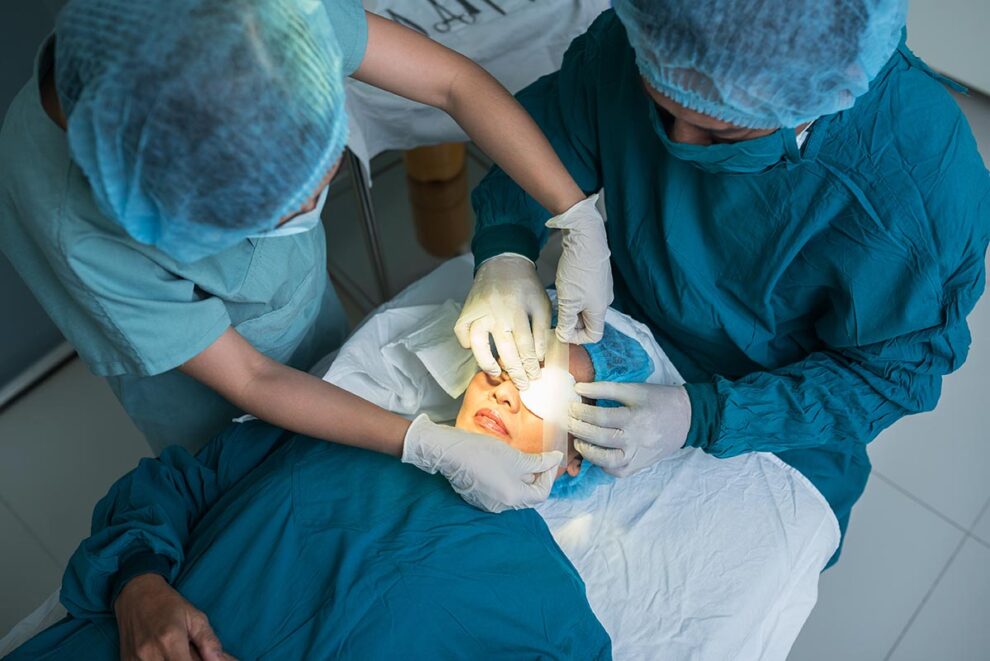
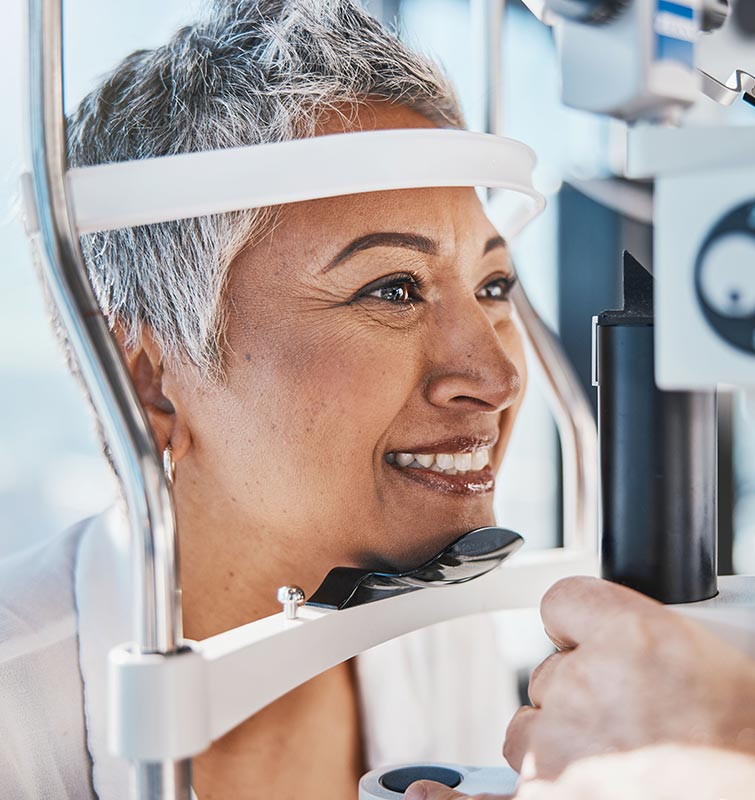
How Are Cataracts Diagnosed?
At Center For Eye Care Excellence, we have extensive experience diagnosing and surgically treating cataracts. During routine eye exams, we will see your cataracts developing long before you notice any changes in the quality of your vision. We keep an eye on their development.
We’ll check the pressure in your eye to be sure we’re not also dealing with glaucoma. For specific cataract tests, we’ll check your sensitivity to glare and your color perception. Cataracts affect both of these functions in your eyes
Our surgeons use only the very best system, Optiwave Refractive Analysis (ORA), to provide an intraoperative measurement to determine the precise lens implant power needed in your eye. The physicians at Center For Eye Care Excellence have been performing cataract surgery for decades using state-of-the-art technology and methods that not only repair sight but drastically improve it.
What Are The Symptoms Of Cataracts?
With cataracts you can expect the following symptoms:
Take our cataracts self-test to see if you are a good candidate for surgery.

There are different types of cataracts, and they have their own specific symptoms because of how they are formed:
Nuclear Cataracts:
This type of cataract forms deep in the lens, and is typically associated with aging. At the initial onset of nuclear cataracts, there may be an improvement in vision, known as “second sight,” for a brief period of time. This second sight is short lived and your vision will unfortunately worsen as the cataract progresses.
Subcapsular Cataracts:
People with diabetes, or people who take high doses of steroid medication, are especially susceptible to subcapsular cataracts. These cataracts develop at the back of the lens, and are generally unnoticeable until they are very far along in their development.
Cortical Cataracts:
These cataracts as white, wedge-like obscurities on the edges of the lens that work their way toward the middle of the lens. Cortical cataracts form on the lens cortex, which surrounds the central nucleus of the lens. Pay extra attention to the peripheries of the lens to catch this kind of cataract.

Who Is At Risk For Developing Cataracts?
As mentioned above, about half of all people will develop cataracts in their lifetime. The simple passing of time is the predominant risk factor, but there are other risk factors that can increase your chance of developing cataracts.
What Are The Risks Of Cataract Surgery?
As mentioned above, cataract surgery is the most successful surgery performed across the globe. It is incredibly common, as well, since over half of the population will develop cataracts at some point. Complications are very rare, and if any of these happen they can usually be successfully treated. These are the risks:

How is cataract surgery performed at Center for Eye Care Excellence
Cataract surgery is an amazing surgery that takes just minutes. It is the world’s most successful surgery. Our team at Center For Eye Care Excellence has extensive experience with cataract surgery. We offer both traditional blade incision and Femto laser bladeless cataract surgery options for these procedures.
We perform a minimally invasive, small-incision, no-stitch surgery called phacoemulsification (phaco) surgery. A tiny incision is made in the eye to make room for a small ultrasonic probe. This incision is so small that only topical (eye drop) anesthetic is used. Once inserted, the ultrasound waves break up (emulsify) the cloudy lens into tiny pieces. The probe then suctions out the pieces of the cataract lens.
Now the eye is ready for the artificial IOL. The IOL is folded and inserted through the same tiny incision through which the probe was inserted and removed. The IOL is then unfolded and the procedure is complete.
There is no need for sutures, as the incision is so small it heals on its own. Also, by using the same incision for the probe and the insertion of the IOL, this significantly reduces recovery times and improves safety by reducing the risk of bleeding, scarring, irritation, and distortion.
Cataract Surgery Patient Testimonial
“Dr. Schultze did an amazing job restoring my vision. Years ago I had lost vision in my right eye and was nervous knowing I needed cataract surgery in the left eye. Dr. Schultze was recommended by my opthamologist. The experience was remarkable for me and I am now seeing 20/20 in that eye. I am grateful to Dr. Schultze and the staff at Center For Eye Care Excellence for their very thorough and professional approach and setting my mind at ease. I could not have had a better experience!”
– William P.

What Is The Recovery From Cataract Surgery?
Immediately after surgery, your eye will be covered with an eye patch. We will also give you a protective shield to wear when sleeping for several days. At first, your vision will likely be blurry, but this rapidly improves within just a few days. You’ll have some discomfort, and your eye may itch as the tiny incision heals and the eye adjusts to your new lens. It’s important not to rub or exert pressure on the treated eye. Heavy lifting is out, as it raises blood pressure on the eyes. Eye drops prevent inflammation and infection and control eye pressure.
Full healing can take up to two months, but because we perform cataract surgery on only one eye at a time, daily activities can be resumed in a few days. Depending on your choice of IOL, you may or may not need to wear eyeglasses for up-close work. The newest IOL options can deliver multifocal distance vision and can even correct for presbyopia, the difficulty with up-close vision that affects most people after age 40.
If both eyes have cataracts, we will schedule the second eye for surgery one or two months after the first.
What Kind Of Results Can I Expect From Cataract Surgery?
Depending upon how long you’ve been tolerating your increasingly cloudy vision, you’ll be amazed at the crystal clear quality of your vision after your surgery. Cataract replacement lens surgery is permanent.
The IOL in your eye will not cloud as your natural lens did. Also, depending on which IOL you chose, any former vision problem, such as farsightedness, could have been corrected. You’ll enjoy your new clear vision for the rest of your life.


